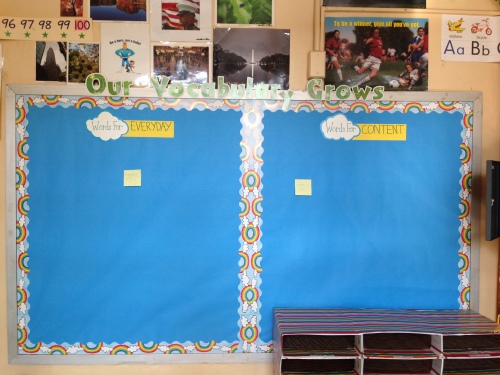Now that it’s been EXACTLY five months since my last post on this blog, here I am with some fresh thoughts for the new school year. But first, how was your summer? And, since I haven’t been here since March, how was your spring? Has it been that long. Yep, it sure has. Last year’s class really took a lot out of me and I struggled to find much to write about. Or, I struggled to find the energy and enthusiasm at the end of the day. Or both. For whatever reason, this blog – and all of you, dear readers – fell to the wayside. I’m sorry and I’m going to try to do better.
So, it’s a new year, and that means it’s time for a new outlook. The good news (or perhaps the best news) is that for the first time in a long time, I only have one grade in my class. Please stay that way. The other best news is that, also for the first time in a long time, I don’t have a testing grade. Though I do love third grade (the math is so fun and the kids are really developing as humans), I’m excited to be back in second. Really, it’s my first year as a full on second grade teacher, but I’ve had bridge classes with second graders three times. It’s a transition and a challenge, but it could be a lot harder. It’s also in my favor that service providers and previous teachers have given me such positive feedback about my incoming class. The reviews are in, and they’re fans.
My plan is to expand on all this and more throughout the school year (as I used to so steadfastly in my younger years), but for now, I’m going to focus on what has emerged out of the blue as one of my big initiatives for the year.
I won’t lie: for a variety of reasons, I strongly dislike having a sight word wall in my room. My room is teensy tiny, and devoting a wall to 26 letters and a growing list of words under each just overwhelms my space and sensibility. The thing becomes hard to look at after a while. A mishmash of sentence strips doesn’t do much for anyone. Biggest, perhaps, is that the kids mostly don’t know how to use the word wall. It’s basically there because it has to be. I’m not a fan of that kind of thing.
In our classrooms early this morning to work on setup and organization (school starts next week), a colleague and I shared a conversation over the dilemmas of the sight word wall. Although my to-do list had on it, “Put up word wall letters,” based on our conversation and brainstorm, that WON’T be happening. As a result of our discussion, the sight word wall space has been repurposed, converted into two separate but related boards, and the sight word wall itself is being moved to a more appropriate, convenient place (or places, if you prefer). It’s a lot to take in so let me walk you through it.
First off, the sight word wall, despite the garish display it tends to be, actually can serve a value when properly utilized by teacher and students. To be sure, my students absolutely need to have the words as a reference. So, the sight word wall will remain, but it will be in a different form. Rather than be up on the wall lording over all the little readers and writers, each cluster of desks is going to have a word wall displayed atop it. This way, everyone has words right in front of them. It will have to be updated weekly, which can become a management issue, but as it’s a new concept, that’s something that needs to be fleshed out. In addition to the communal ones on the tables, each student will have his or her own word wall. It will contain the words of the week as well as any words taught in guided reading, or that the student wants to include. (Differentiation and student choice alert!)
Next, the space formerly occupied by the sight word wall will continue life as not one word wall, but TWO. Wow. Since the texts we read are so crazily complex, we think it’s best to move ahead with word walls full of delightful vocabulary that come from the texts. And instead of being there just to be there, they’ll be there as major foci for our students.
Why two, you wonder? Well, on one side there will be words for everyday use (little nuggets of gold like, “ideal,” “usual,” and, “plenty.”) The hope – and, to be fair, the expectation – is that students take these excellent and valuable words and transfer them to all facets of their literacy. Hey, that reminds me of the superb job my students did last year with just that sort of thing. On the other side will be words for content. These are words students need to understand in order to understand topics about which we’re reading, but that may not transfer too well into the rest of the world. As an example, last year, we read a book that used the word “culvert.” It didn’t make sense to expect students to use this word outside of book-related topics, but it was definitely important to their comprehension of the story.
The word wall will look something like this, and it’s possible, if not likely, that each wall will be sectioned for nouns, verbs, adverbs, and adjectives. I’ve got a bug/garden theme going this year so I’m saying, “Our Vocabulary Grows.”
There’s no secret here. I am a word nerd and I love when kids get excited about new vocabulary. I can really envision this new setup taking off and benefitting the students more than any old sight word wall will.
For more inspiration:









